#maasai earrings
Explore tagged Tumblr posts
Photo

Boucles d’oreilles ethniques à motifs Massai ::: Timeless Fineries
https://www.timeless-fineries.com/collections/boucles-doreilles-africaines-massai
timelessfineries.etsy.com
#boucles d'oreilles africaines#bijoux massai#boucles d'oreilles ethniques#timeless fineries#bijoux africains#boucles d'oreilles massai#bijoux ethniques#boucles d'oreilles tribales#bijoux exotiques#mode africaine#african earrings#maasai earrings#traditional jewelry#ethnic patterns#kenya#beadwork#exotic jewelry#african jewelry#tribal ear pendants#drop earrings#jewellery
3 notes
·
View notes
Text
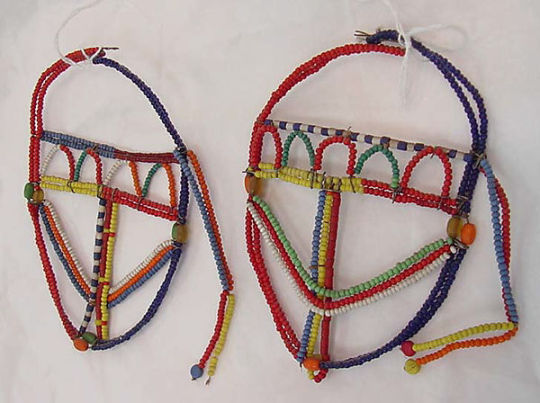
Maasai earrings, early 1900s, Kenya or Tanzania.
35 notes
·
View notes
Text

Hey #Lovers❤️🔥! Dive into 🌺RAW1111.COM🥑 and explore 👂🏾 Ear Stretching: An Ancient Tradition of Beauty and Significance 🕉️. Unveil the history and meaning behind this timeless practice. #GVWU Go Vegan With Us 🌱💚
#ear stretching#ear gauges#Africa#Maasai#Ethiopia#Asia#Thailand#Myanmar#South America#Huaorani#Europe#otzi the iceman#raw vegan#vegan#fruits#nature#vegan food#vegan lifestyle#vegetables#gvwu#realnessalwayswins#plantbased
2 notes
·
View notes
Text
#africa#animal mother#biodiversity#british columbia#candice gaukel andrews#center for whale research#climate change#conservation#drones#envrionment#global warming#hyenas#kenya#maasai mara#mara hyena project#mother's day#mother's day 2024#natural habitat adventures#nathab#nature#ocras#red eared slider#science#science and environment#scientific research#southern resident orcas#turtles#wild#wildlife#world wildlife fund
0 notes
Text
The Princes
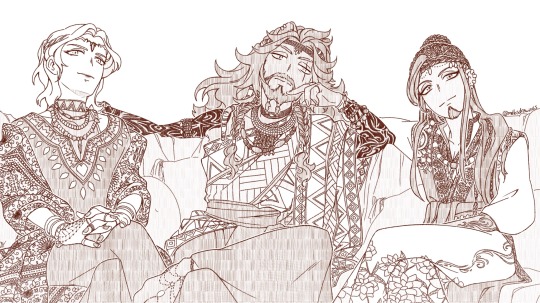
Ten years later. When marrying a Prince turns a Queen and a Servant into actual Royalties.
Because Vil deserves a real crown and Jamil deserves to be treated better.
NOW I'M GONNA RANT ABOUT MY CHARA DESIGNS CHOICES AND ALL THE DISCOVERIES I MADE WHILE LOOKING FOR REFS! If you only care about art and funny doodles, you can scroll down for a handful of slices of life.
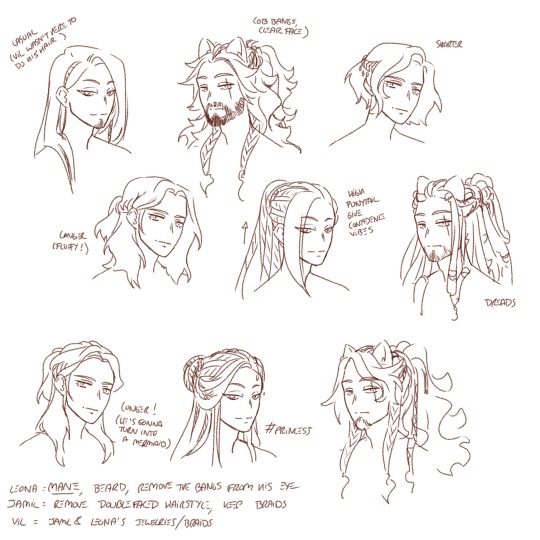
(Don't worry if you can't read my notes, I'm repeating myself better right under this)
Leona
-Lion: As you may know, one of my grievances with Leona is how his hair doesn't look like an actual mane despite being a lion. While I don't want to stray too far from the canon design with the usual drawings, that's the occasion for me to have some fun with a future version. Give that lion a beard and voluminous hair!
-Hair: First, get those bangs out of his face. Despite Leona being very confident, he still has bangs covering his scarred eye. I wanted him to finally own the aspects of him that may be scary to others (his UM, his scar, etc). I actually went with bangs framing his face similar to the ones he had during his Overblot. I wasn't sure whether to give him dreadlocks or curly hair, but I ended up choosing the free curls decorated with some atebas and braids so that Vil could have more fun styling them.
-Eye: Thanks @aria-faye for the idea, I decided to have his eye gradually lose its capacities with time. From a headcanon that, while the eye wasn't directly touched by whatever attack scarred him, the process of healing still had an impact on it and he gradually lost sight in his left eye years after years.
-Body: Not giving him a dad bod (yet, maybe in another ten years), but definitely giving him more voluminous yet casual muscles. Practical muscles with a healthy dose of fat and tissues. Also giving him two full sleeves of tattoos because I decided he should have much more than just his lion tattoo.
-Clothes: Went full Maasai dressing and Kenyan fabrics and beadworks. If you're not familiar with it, please go check it out, it's GORGEOUS!! Crown is beadwork too. He also has one Arabic styled foot jewellery.
Jamil
-Hair: My first order was to remove his double-faced hairstyle and also remove his bangs from his eye. Make him confident enough to show his whole face. Unlike Leona and Vil, he doesn't really want a crown though (he still feels weird about becoming royalty) so instead he uses a braid as crown. Also gave him a little goatee because I like facial hair and Jafar has a beard too.
-Body: He grew up! While he didn't quite catch up with Leona and Vil, he is now closer to their sizes than before, sitting at around 180cm. He kept his breakdancer/martial artist lean muscles but developed a bit of shoulders.
-Clothes: Went full Arabic dressing and fabrics (once more, go check the fabrics, they are pieces of arts). I gave him floral motifs instead of his usual fire/snake motifs (though he does have a snake earring and a fangs necklace) to symbolise his rebirth/blooming. Like Leona, he has one piece of jewellery that is beadwork.
Vil
-Hair: Here it was a bit tricky. Considering Vil's work, he likely changes hairstyles a lot, going from long to short for his roles instead of his wants. So I leaned into the little things he could add to his hair despite their constant changes, mostly jewelleries, beadworks and wool decorations he stole from his husbands. He also cares a bit less about them looking perfect and is allowing himself to be more natural. He doesn't have any facial hair (yet), keeping a youthful appearance for as long as he can. In another ten years though, he might start looking more and more like his father, beard included.
-Clothes: For Leona and Jamil's mental states, the three of them most likely started living in Sunset Savanna so they wouldn't freeze to death. Vil is well traveled so he can handle most temperatures without trouble, and he is used to dressing up in the local get ups. Here I decided to give him both African dress and Arabic fabric, and likewise both beadwork and golden jewellery. I gave him crown and heart motifs so he can keep being himself despite borrowing a lot from his husbands.
There, I'm done rambling. Here's some doodles, followed by some random headcanons.
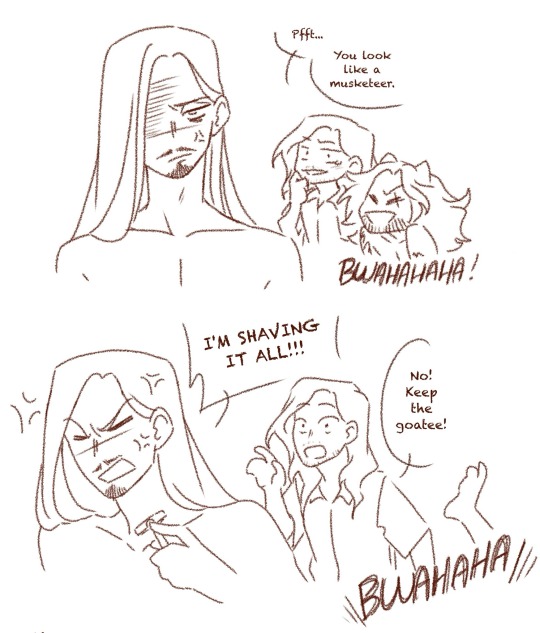
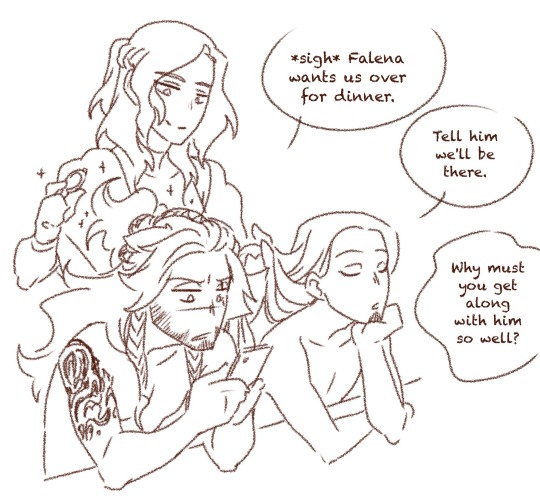
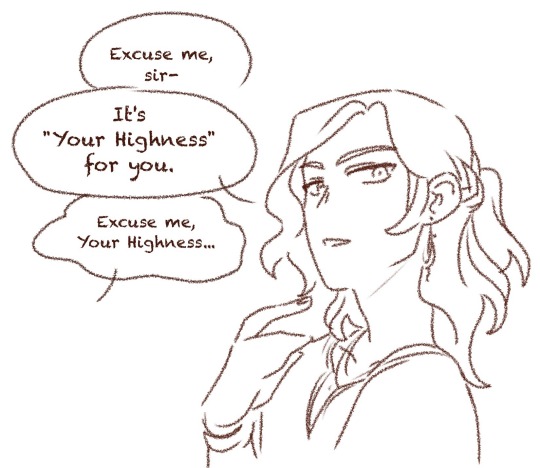
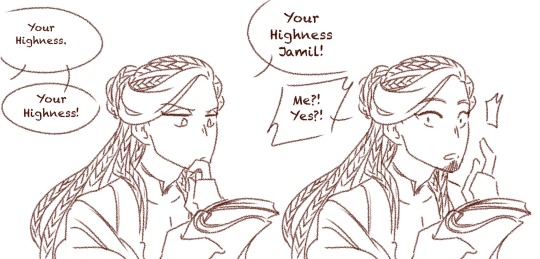
-Vil does his husbands hair every morning and keeps giving them more and more intricate hairstyles. He developed a whole haircare and beard-care products set for them.
-When Vil is away for a movie, Jamil keeps his hair mostly down save for a few accessories.
-Jamil and Falena get along surprisingly well (to Leona's despair). Vil gets along very well with Falena's wife.
-Jamil acts as a Scalding Sands ambassador and still is the one to care for Kalim when he comes to visit, though this time he's doing it because he wants to and not because he has to.
-Vil got used to his new title immediately but Jamil struggles with it a lot. He still has a hard time wrapping his head around the fact that he is no longer a servant.
-The servants at the palace love Jamil because he always makes their job easier.
-Leona finally decided to put his wits to good use and became Falena's advisor. He still fights a lot with Kifaji about the direction to take with the country, but he managed to make some of his ideas heard to help with the staggering inequalities in the country.
That's all for now!
#so... that's officially my longest piece to date#this one took me nearly 10 hours#and I'm considering doing a colored version because Arabic and Kenyan fabrics are so beautiful I swear#won't happen in a while tho#mello's drawings#n2 squad#jamil viper#leona kingscholar#vil schoenheit#javil#leojami#leovil#twisted wonderland#twst#art#my art#analysis#Future!N2
1K notes
·
View notes
Text






That was a bit spontaneous purchase. I promised myself not to buy more Barbie dolls but... I really love vintage African Barbies and wanted to add Nichelle facemold to my collection. And so, here it is - a beautiful Kenyan Barbie, Dolls of the World series, released in 1994. I bought her second hand in a very good condition, just a bit dusty. She has her original clothes, necklace, earrings, ring and bracelets. She wears traditional Maasai clothes. Although I'm not very fond of such bright red colour, I have to admit it really suits her.
#doll photography#doll collector#barbie#dolls of the world#kenyan#african#maasai#dollcore#mattel#ethnic#nichelle#1990s
14 notes
·
View notes
Text
Swiftwire: Updated Appearance
..... She really needed a fresh new look, due to all the shit she's gone through, and just generally smooth out the rough edges of her lore, which I'll do as part of a full bio later, since it's gonna be a long post.... So I'll just do her main details here for the sake of putting only what's important here. XD But also JUST LOOK AT HER!!! 😭 SHE'S SO BEAUTIFUL!!
This was done by the amazingly talented and legendary Torrent/torrentarts on Tik Tok!! So if you ever see this, THANK YOU AGAIN, HONEY!! >w<
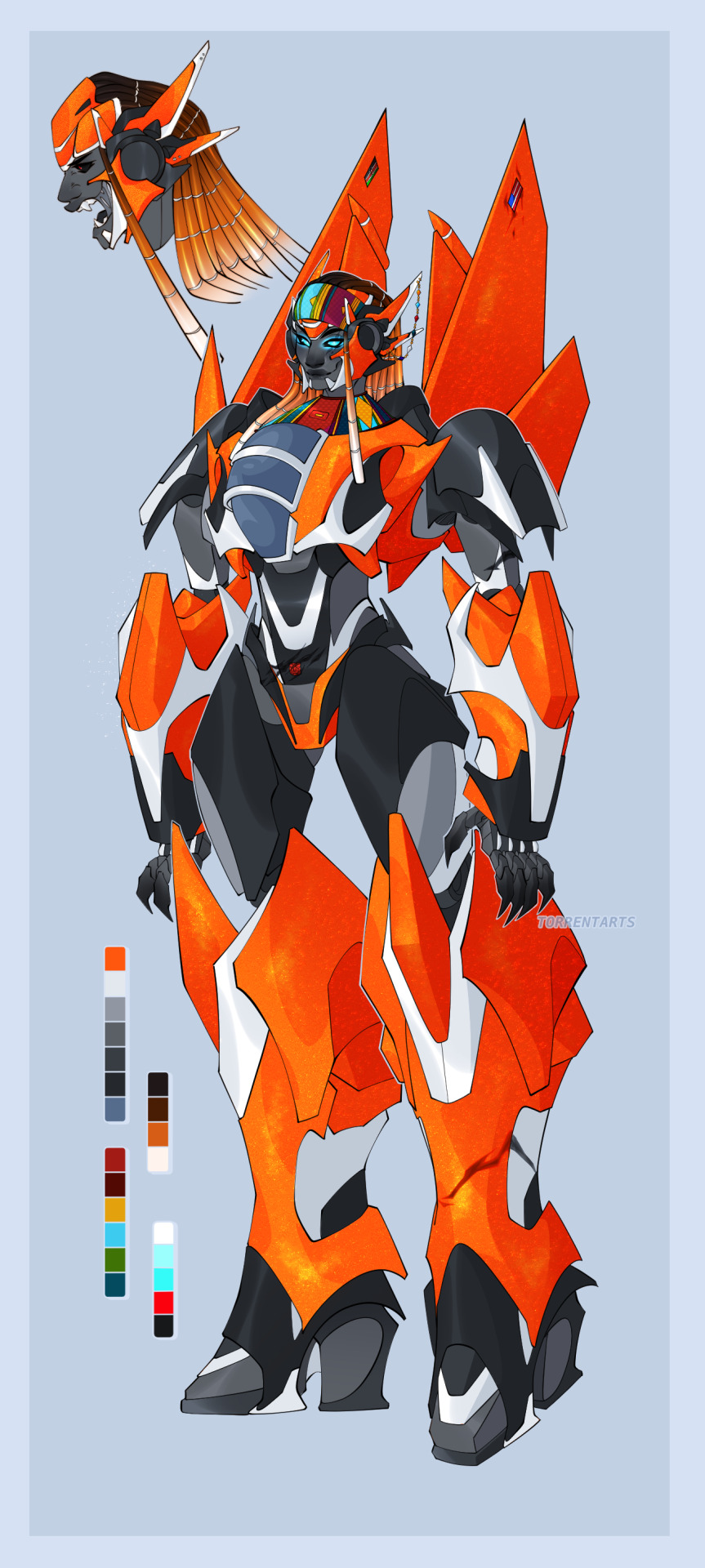
(Also a version of her without her kanga/scarf, her flags or her earring~)
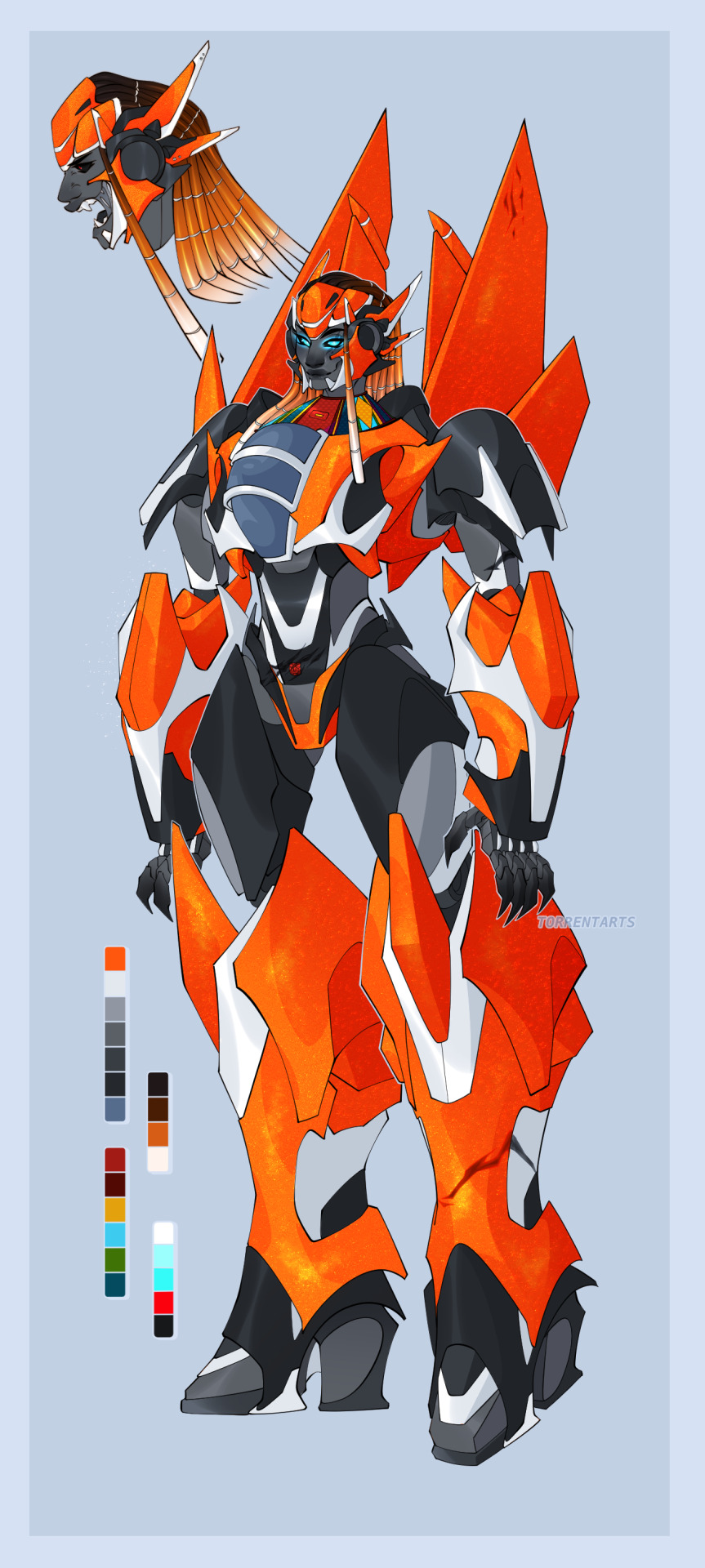
Swiftwire Asya Zahara Mutheru of the Maasai Tribe
~ ~ ~ ~ ~ ~~ ~ ~ ~ ~ ~ ~ ~ ~ ~ ~ * ~ ~ ~ ~ ~ ~ ~ ~ ~ ~ ~ ~ ~ ~
Her story is still generally the same, but just added a few tweaks to make her blend in better with a more canon aligned world (i.e; Earthspark and a little bit of IDW/Lost Light), but I'll reveal it at a later time, once it's fully fleshed out.
~*~
In short.... Swift is still a former human (originally named Asya Mutheru) that was turned into a Cybertronian, doing so by having her body digested by the Energon within a Cybertronian protoform's hollow spark, burning away her corpse to pluck her soul out and turn it into the spark that brought Swiftwire to life, all thanks to her birth father, Jeremy Omari.
~*~
Personality wise, Swift is still as maternal, goofy, vain but kind, and as flirtatious as ever, and is generally the "Mom Friend with gremlin energy" within any group she finds herself a part of.
~*~
Deep inside her psyche, however.... the monster that Swift's body was supposed to become is still alive.... He's just taking the backseat instead of dominating and controlling the body fully like Swift is now. This is purely because Asya was supposed to die and pass on when her human body became the cadaver powering her spark... But instead, her soul took over and changed the Cybertronian husk into her new body, one that became female presenting instead of male.
~*~
That monster is Talos, a Beastformer designed by Jeremy to take on the appearance of a blue Minotaur Spartan Hoplite soldier in the form of a manmade Transformer.
~*~
Talos's presence is still inside Swift, and only truly comes out when she is angry and starts to "see red". That saying, in her case, is literal, as her eyes change and her jaw elongates to show who is slowly taking over her (as seen in the image above Swift~).
This change is known as 10% Corruption Mode, where Talos takes over only a small part of her and dominates only her face and her instincts. The more of her body that changes, the more the "corruption" reaches 100%. When it reaches that mark, Swift will no longer be in the driver seat of her own body and mind, and both will then be fully under Talos's control.
~*~
Talos and Swift are like Jekyll and Hyde, but instead of them simply sharing a mind, Swift and Talos are both Transformers with their own root and alt-modes, existing in the same body. Talos has his main form (the Spartan Hoplite) and his Beast alt mode (the Minotaur), while Swift has her main form/root mode and her jet alt mode. So Swift isn't really a Triple or a Quadruple-Changer.... Talos exists within her with his own root mode body that takes over Swift's, and her jet form becomes the Minotaur form he transforms into.
~*~
When Talos takes over Swift's body, her frame colour changes from glittery orange to a dark midnight blue, starting from the head and bleeding down her body. It is a painful process each time, as it feels like she is being ripped apart from the inside out, especially when she tries to keep Talos locked inside, but before this happens, the first two things that change are her eyes and her jaw, the 10% Corruption stage....
~*~
Her eyes are always the first to change before the colour of her frame switches. Usually, they are blue with black sclera, and white slit pupils that were once round, before Talos first emerged and forced her to change. They remain slit to this day as a remnant of his presence within her, and so when he emerges.... They turn from white to red. The blue of her irises then vanish into the sea of black of her sclera, making her pupils the only thing that stand out in her eyes, and show that Talos has now taken over her mind.
~*~
The next to change is her face.... Her cheeks bear a line across them that is another permanent remnant of Talos's influence, and so that line opens and forcibly stretches and exposes the metal muscles and sinew that connects her jaw to her skull, but it doesn't damage her jaw or skin in any way. Her cheeks heal every time she returns to normal.
~*~
If the changes progress any further from here and reaches above 40% Corruption, then Swift will be locked inside herself and Talos will fully front without any further resistance, and assume full control over the body. If Swift does manage to resist and stop Talos before reaching 40%, then she can regain control and revert back to her own body.
~*~
If not..... Then her body will fully turn blue, her Seeker form becomes masculine and beefier, and Talos will then stand in his full, armored, Spartan Hoplite form with split-hoof bipedal legs, Swift's dreadlocks now forming the iconic mohawk of his helmet (also turned black and blue in hue) and her wings flat and fused together to act like a cape, with Talos's split-mouthed face hidden in his helmet, as the body now presents itself as his.
~*~
As his Minotaur Beast alt-mode..... The wings and dreadlocks are packed away, and his upper body becomes that of a bull with long, curved horns pointed forwards, a thick silver ring in his snout, and his maw still filled with fangs and his arms bearing Swift's claws... Which become blacker and travel further up her arms the more she allows Talos to take over.
The only way to bring Swift back is to knock Talos unconscious.
~*~
It should also be noted that Swift's height is 17 feet... Talos's main/Spartan form is 25 feet tall, while his Minotaur form is roughly 22 feet. (All using Earthspark heights for comparison)
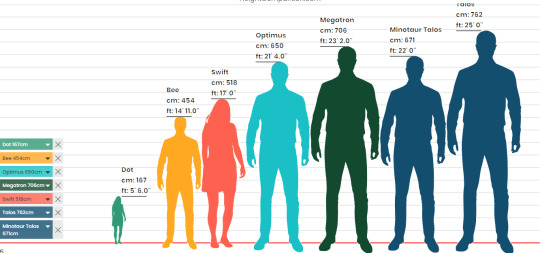
Also..... This is his voice claim.... Everything he says is canon to what Talos is like and how he speaks to Swift in their shared headspace~
10 notes
·
View notes
Text
Lunch
June 4, 2024
There are guides. And then, there are guides! Can’t say we’ve had a bad one, but a few really stand out. Anaeli is one of those. He’s been guiding for about 25 years, since he was about 25, and his experience shows. He’s not only great at the substance of the job, but he’s been great at reading us, being responsive and proactive when appropriate. And most of all, his sense of what and when something might just be worth waiting for is impeccable.
Coffee was, of course, delivered to our room via the horizontal dumbwaiter and after getting ready and packing, we headed to the lodge for breakfast. This place has been pretty special. Too bad we didn’t have a day to chill and enjoy. But our marathon was ready to continue. Johnathan was grateful for the tip when Jill handed him an envelope at breakfast, but he asked us to hold it until the full staff was assembled to bid us farewell. A class act. We did so, and left as they all waived goodbye.
Joseph, a Maasai who grew up in the local village but has since moved away, was our guide for a walk to the village and we were escorted by an armed park ranger. It was a bit treacherous walking down the steep drive with dry sand and pebbles, but fascinating as Joseph would stop here and there to describe plants, flowers, and the medicinal qualities of each. The Maasai have home grown remedies for everything from skin ailments (Seb) to cough (Seb) to remedies for a bad tummy (never know for Seb or Jill), and even soft leaves appropriate for “bush TP.” Anaeli picked us up part way to the village to shorten the trip. On arrival at the village, one gent was there to greet us. Joseph and he escorted us in and placed us well to watch the welcome march and dance that the villagers performed for us, as well as a jumping contest of the younger men. They were all dressed in the wonderfully vivid, bright colored, mostly plaid garb. The women additionally have large earrings, necklaces and rigid beaded collars with bells that bounce when they dance. Seb joined in on invitation, making a general fool of herself, but what the heck. The men demonstrated how they start a fire (for a bush bar-b-que) and then we toured a home - stick structure with cow dung walls and roof. Iit doesn’t get more simple than this living, but these folks seem happy. They are, of course, paid for opening up their homes, but it felt less intrusive than we expected.
The drive out was stunning. It’s hard to describe just how vast things seem. From up on the ridge of the Ngorongoro Crater, one looks down across miles and miles of planes with Acacia trees on the hills and dotting the landscape. We passed some Maasai selling honey that Anaeli suggested is not up to good sanitary standards and various groups of Maasai walking here and there. When we got down to ground level (from somewhere on the order of 7000 ft), the plains likewise went on forever. A photo can do no justice to the horizon that one can see, hazy but amazing.
The day was long. On bumpy dirt roads, it took us a while to get out of the conservation area - a fair number of trucks and vehicles kicking up dust, particularly those that speed along. (We’re grateful that Anaeli is a carful driver!). At one point, some workers were attempting to regrade the road, now that rainy season is over, but were doing each side, leaving a peak in the middle and a serious slant on each side of the road. And they seriously added to the dust situation. We saw some animals including baboons, giaraffes, gazelles, as well as herds of sheep and cows belonging to the Masai. One of the notable impressions is seeing, in the vast landscape, a pop of color where a Masai herder or other is wandering.
We made a quick stop near Olduvai Gorge, where the earliest human was discovered. Onward, continuing to bump along, we crossed into the Serengeti and shortly thereafter came to a stop for the obligatory park entrance fees (and another bathroom break - gotta’ take it as opportunities present!). Anaeli was cute, urging us to drink our water, and giving us deadlines to finish. So good to know he’s looking out for us.
A little into the Serengeti, there was a regal male lion just at the side of the road. We almost went by it, but eagle-eyed Anaeli spotted it and backed up a bit. He saw a couple other vehicles stopped ahead and speculated that it might be a few girls. No! Better! It was two cheetahs. They were quite well camouflaged in the grass. We pulled up along with the three or four land cruisers stopped already. It was fun to watch them alternate sitting up and scanning around and lying back down to rest. We were close enough that we could see them doing some heavy breathing in the sun and heat. Anaeli thought they might move across the street to some shade. He said that cheetah sightings are fairly rare in the Serengeti (there are relatively few, as they are less competitive for food than other animals), and hinted that we might like to eat our packed lunch while we wait to see if they make a move. All the while snapping the periodic photo (cute little buggers that they are), we all of a sudden realized there was a third. At that point, Anaeli realized they were likely brothers or colleagues hanging out together. He suggested and we agreed to wait to see what happens. All of the other vehicles got bored and left. Another one approached and stopped. At that point, Anaeli spotted a young, limping wildebeest in the distance and he foreshadowed what was to come. The poor soul was zig-zagging right toward us. No way we could get that lucky. No way the three cheetahs could get that lucky. One seemed to spot the wildebeest. Then he crouched down. The other two were oblivious. He got up and down a few times and seemed to get more attentive. Then #3 saw him. #2 was still oblivious, looking our way. Poor unaware wildebeest kept coming. Soon he was approaching and it was quite clear what was going down. In a flash, all three cheetahs got up and went into prone positions and as if on queue, they charged. WOW. We sat riveted, as the wildebeest tried to evade, but it was never going to happen with three cheetahs. They chased, weaved, lept on him and finally brought him down. They disappeared for a bit. Then two popped up to scan the horizon (where IS that lion that was oh-so-close, and which way is the wind blowing - seemingly in their favor…). Finally all three popped up together - the beast was clearly a former beast waiting for the three to LUNCH!
What an amazing experience to see the kill from start to finish. We finally pulled away and continued our journey, understanding what the Serengeti is all about - nature, survival of the fittest, and the circle of life.
The rest of the afternoon was driving. A lot of bumps. And more bumps. And more bumps. The landscape over time gave way to rock outcroppings (some for “Simba” and some for Masai) then more and more trees. Along the way, we observed the great migration. A whole new kind of “wow.” At times hundreds, thousands of wildebeasts with (only sometimes) zebras in the mix. They move in lines or groups,heading to where new, fresh grasses will be. At times they stop en-masse to chomp on some grass, some guys romping or fighting, and all the while, loads of grunts from the huge herds. It is truly a sight to behold, particularly on several occasions when we stopped and were totally surrounded with animals as far as they eye could see! It turns out that, contrary to popular belief - the great migration is not simply a 2x/year seasonal event. They come and go from Kenya 2x/year (maybe it’s a marketing thing for Kenyan tourism?) but they migrate throughout much of the year all around Tanzania, to find the grass they need to survive. They decimate a region, poop excessively, and then by the time they ever get back to that area, the poop had fertilized the soil and the new grass is wonderful again.
The rest of the drive was interesting by way of evolving scenery, with interesting new animal sightings here and there (a cobra on the road, for example, who slithered off before we could snap a photo), and some classic big game, still a rush to see.
After going through the central Serengeti, we headed west toward our destination. It was amazing that Anaeli knew where to go with all we were doing was following reasonably well-worn and less worn tracks in the grass. We asked if he ever gets lost and he admitted that he has and on occasion still does (but always finds his way out!). We remain convinced that later in the afternoon was one of those occasions. He looked around intently for a while, had a radio conversation that we couldn’t understand, but did not admit to not knowing where we were going. Was it just our imagination that we doubled back? And then backtracked again? It was at this point that Jill passed an iPhone note to Seb asking her to check the gas gauge (thankfully still at 30%). At any rate, with only one near stuck-in-the mud situation (he stopped, got out, assessed and made the right call to get us out), we made it to camp by about 5:00 PM.
2 notes
·
View notes
Text
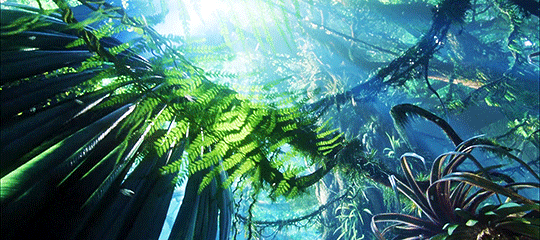
new Na'vi clan for a fic I’m making
clan name: Lei'wa
looks: similar to the Tayrangi, Olangi and Omatikaya just with tails like the sea clans for better swimming and Afro-textured hair.
the Lei'wa clan are a sea island clan off the coast of the Eastern Sea. they're an Ikran or banshee riding clan, who are known to be the first warriors to make a clean kill of a thantor or a Palulukan.
cultural inspiration (now please take note, it is purely inspired, NOT appropriation.)
many of my inspiration for the Lei'wa clan is from the Native Americans of the southwest USA, and Maasai people of Kenya. their culture is all about being amazing carvers, weavers and hunters. there are many legends in the clan and was the first clan to speak the Na'vi language after the Ni'avwe clan, or the "Official First Clan." much like the sea clans, tattoos are very important to them. they can be intricate designs on the hands and thigh to small lines or marks on the face, mainly following the person's stripes.
here is some pictures of what i mean
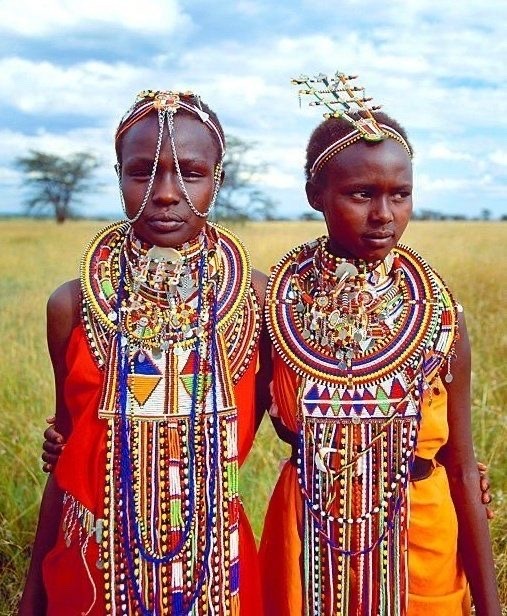
(i don't know what the things they wear on their neck are called but they're so pretty)
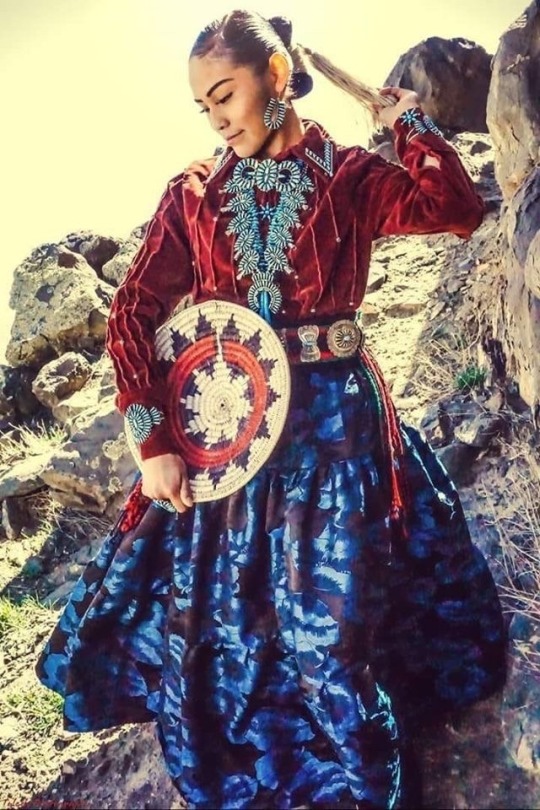
many women have ear gauges, kind of like Neytiri's. they can be painted to look real pretty with designs of Ikran stripes. speaking of jewelry it isn't gender specific. men can have earrings and gauges, fancy necklaces and bracelets, all of it.
when did the Sky People discover them?
about three years after the events of Avatar 2009. they were hostile at first, sending warriors to attack them. but their olo'eykte at the time Nanti made peace with them. yet when the sky people came back and Jake rallied the clans (again) they joined in the effort. many of the other Na'vi that live at Hell's Gate at the beginning of The Way of Water are from this clan, since two of their main islands, Nguway and Paytxew we're uninhabitable when they landed.
where do the Sully's tie into this?
Lei'wa was a peaceful place for a good long time, only going to war when the humans arrived. the Lei'wa were the clan that let the Sully’s stay on the long journey to Awa'atlu in the Souther Sea (I'm assuming.) they were being lead by their Olo'eykte, Eyrina and Tsahík Riki. Eyrina and Riki are sisters, and since Eyrina was female, she became Tsahík. Eyrina and her mate, Khalo later have 2 kids, a boy and a girl, the boy, Naran se Zeykoyu Khalo'Itan. and the girl, Tseyal se Zeykoyu Eyrina'Ite. Tseyal is 13 and Naran is 14.
they hung out with the kids a lot. Naran being close with Neteyam and Tseyal being good friends with Tuktirey and Kiri. the news pf Neteyam’s death spread as soon as he was buried because of Pandora’s neural connection to everyone and everything. the clan was hurt, seeing how kind and loving he was. they made the journey to Awa'atlu to help fight the Sky people.
so yeah! that was a lot to write. hope your thanksgiving was amazing, bye now loves :)
4 notes
·
View notes
Text

Boucles d'oreilles ethniques Massai / Timeless Fineries
timelessfineries.etsy.com
#bijoux ethniques#boucles d'oreilles africaines#bijoux massai#bijoux africains#mode bohème#timeless fineries#boucles d'oreilles massai#maasai earrings#african jewelry#ethnic style#maasai jewelry#tribal beadwork#african fashion
1 note
·
View note
Text
Sept 10-17, 2023
I had planned to write this blog on Substack but it got too complicated for me so I will continue these African Adventure posts on Tumblr.com.
This will be the journey to Kenya to participate in the volunteer program of African Impact in the Pardamat conservancy of the Kenya National Wildlife Reserve, Masai Mara.
What a long journey from Hawaii to Kenya. Fortunately I have a very good friend, Maggie, in Pacific who I get to visit when I am passing through San Francisco. I stayed two nights in her delightful company and rested up before the long flight to Kenya.
I arrived several days several days after I was exposed to Covid at work. I wore a mask on the flight but where 5 days had passed we thought we were safe, which proved to be true, but I was not fully comfortable till the 14th day had passed. I never got it. Hooray! Those around me could breathe a sigh of relief as well. I am vaccinated up to the gills so maybe that saved me?
Anyway, I digress. i flew KLM. airways which is marvelous. Great service. Seems they were always offering food or drink or hot towels. I watched 4 movies on the first leg which ended in Amsterdam for a three hour layover.
Because I get wheelchair service, I did not find my friend Joanne who was also traveling on the same flight to our destination in Kenya till we were ready to board the next flight for the final leg of our journey.
We got in somewhere around 10:30 PM after an aborted landing because there was debris on the landing strip! Finally after circling and losing our place in the landing line we did so.
Went thru the usual immigration and customs, again not seeing Joanne. I went outside and waited and waited, and was getting worried. A nice young soldier asked what I needed and he called the man who was to-pick us up, who was with Bonfire Adventures and tours. He found us and we waited some more. Finally Joanne appeared and we walked to the car and were driven to Masai Lodge near the town of Rongai. It is on the Southern border of the National Park. The drive took over an hour. The last 3 miles over an horrendous dirt road. We arrived around 1 AM pooped but happy to be back in Kenya.
We love that lodge. It. is mainly for the local people. Despite its name, it is run primarily by Samburu people. the Samburu are cousins to the Maasai. The lodge looks out over the Nairobi Game Park. Animals come into the large green area below the lodge which sits on a hill. There we see warthogs, antelope and baboons. There are tree hyrax and rock hyrax busy in the surrounding areas. The tree hyrax are quite used to people. Cute little creatures resembling a bunny without the long ears.
The 4 nights at the lodge allowed us to get over jet lag and start to get used to the altitude. It is like Denver, a mile high.
I was able to visit my dear friend, Dr. Paul Sayer, my colleague from teaching at the veterinary School in Nairobi back in 1967-1969. It was delightful to be with him and catch up on our lives and reminisce about the old days. (See-my book African Sojourns on Amazon.com to see what we did back then…)
The next day Joanne and I went to visit her friend, Rachel Kabue, who founded and runs The Cat Sanctuary in Nairobi. There are about 170 cats there now as she found homes for close to 130 of the most fit ones recently. Some there are very thin, and I fear may have some sort of blood parasite or Feline leukemia. However most are quite fit; they are all sweet and get along. She also has rescued a few dogs who live together with the cats. It is scrupulously clean with no odor.
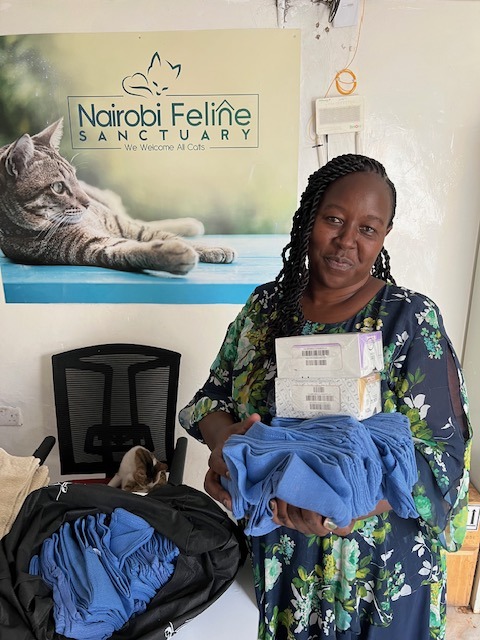



Rachel, Some of the cats and dogs, Denise and friend, and Joanne and another rescue.
I spent one day sleeping a lot. Another day we had a guided walk by a Samburu man in full regalia looking very exotic and handsome in his colorful short dress like outfit with knee high socks and beaded ornaments and carrying the spear in case we ran into any aggressive animals. As it happened we only saw Impala and some monkeys and baboons. We met up with two Masai gentlemen in Western clothes who ran a nearby lodge and were friendly and fun. They all wanted photos which Joanne took but I have not got them right now. Will send next time.
The African Impact Driver came for us to transport us to Brackenhurst Conference Center in the Highlands in a town called Limuru. It is at 7000 feet so it has rather brisk evenings. It always tickles me when there, as after dinner, I come back to a bed with a hot water bottle in it. There we rested till the next morning where we would start out at 8:30 AM for the long drive to Pardamat.
I will write more tomorrow about the first week at the volunteer placement.
2 notes
·
View notes
Text
Some Interesting Facts About Maasai Jewelry That You Should Know
Maasai jewelry is a traditional beadwork that holds a cultural and symbolic significance within the Maasai culture. It represents beauty, strength, tradition, warriorhood, marriage, social status, and love toward cows. The beads' colors are used for decorative purposes and represent various aspects of the wearer's identity.
These days, many people love Maasai beadwork that is used to create accessories like jewelry, belts, and sandals, as well as home décor items and many household tools. This is also one of the most preferred gift items that people give to their loved ones.
In this blog, let's explore some interesting facts about Maasai Beadwork and what each color in the bead symbolizes.
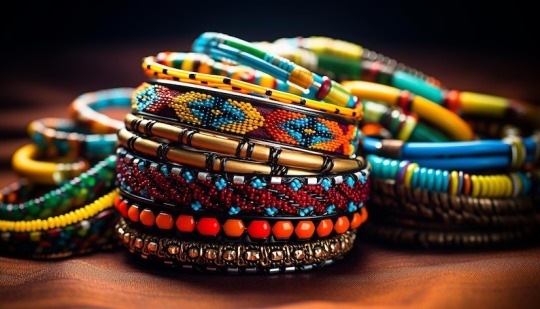
Some interesting facts about the Maasai Beadwork
1. Represent Maasai cultural values and traditions
Women specifically craft these beadworks. So, they must learn beadwork. Both men and women wear this jewelry in every cultural practice, like weddings, rituals, and community events.
2. Existed for centuries
Maasai Jewelry are traditional adornments that date back to centuries. In the 19th century, people from all over the world got to know about this jewelry after trading with other tribes.
3. Beads weren't used to make ornaments
Maasai women initially used dried grass, sticks, clay, seeds, and shells to craft these traditional adornments. With time, women started using attractive beads made of plastic and glass to make jewelry, which they traded with other communities.
4. Worn as per age and social status
People with higher social status wear more colorful beads. Unmarried women wear large flat beaded discs on their necks while dancing to show their grace and flexibility. Women getting married wear a heavily beaded neck piece on their wedding day. Married women wear long necklaces with blue beads.
5. Different colors have different meanings
In Maasai beadwork, beads have different colors, each with a special meaning. Both Maasai men and women wear them to express their wealth. Continue reading this blog to know more about what each bead color signifies.
The Symbolism of Maasai Beadwork
At the time of the marriage, the mother crafts a special wedding collar representing their village. Several beaded strands hang off the traditional wedding collar and symbolize the dowry in cows. This will be handed over to the bride's family. Women also wear similarly layered collars every day or in ceremonies to represent wealth and beauty.
In Maasai culture, beads are a form of adornment that can be worn every day in ceremonies and rites of passage. These are also given to the visitors to show gratitude and respect.
Now let's explore more about what each color bead in the jewelry represents of the Maasai culture.
Red: Symbolizes the daily strength, unity, and bravery that Maasai people face.
Blue: Symbolizes energy and sustenance and represents the color of the sky.
Green: Symbolizes the color of the grass that provides nourishment and food production for the people and their livestock.
Orange: Symbolizes warmth, generosity, friendship, and hospitality. It also represents the color of the gourd used to serve milk to guests and welcomes visitors to their houses.
Yellow: Represents growth and fertility, signifies the color of the sun.
White: Symbolizes health and purity and represents the color of cow's milk which provides nourishment.
Black: Symbolizes unity, harmony, and solidarity. It represents the color of the people and the daily struggles that they face.
Conclusion
Maasai jewelry is a beautiful artwork, including colorful beaded ornaments objects like earrings, ear flaps, necklaces, bracelets, belts, and headbands. It is more than jewelry for the Maasai people. It is a beautiful way to express their feelings, wealth, and testament of their skills. Today, these beaded artworks have become very popular all around the world. Visit African Bazaar and get your own Maasai beadwork at reasonable prices. They also create beautiful and unique handmade items like sandals, jewelry, dress, and so on, which can help you get a traditional look. So, hurry up. Shop now.
2 notes
·
View notes
Text
[ID text–
Blurry photograph of several men of African descent. They are wearing what looks like checkered shuka fabric, which suggests that they may be Maasai. The one man whose ears can be seen is sporting ear jewelry. He is also wearing what looks like a zippered red-brown leather jacket, even while clad in red checkered fabric wrapped below the waist. He is carrying what looks like a Maasai war spear in his right hand. Another man behind him appears to be carrying some kind of long rod.
The photograph is captioned at the bottom with the following text:
We are going to looking to find the hyena.
Overlaid on the image is the following caption, in larger font:
After trying Jägermeister we went after the hyenas that stalked our village [face with tears of joy emoji]
End ID.]
The overlaid caption may be a reference to a video posted on TikTok by user "maasaiboys" showing some young Maasai men trying Jägermeister in their village. They seemed to like it, especially because of the sweet spiciness and herbal content (although one also recommended mixing in some cow blood to increase its healthful properties).
They apparently went hunting hyenas after this, posting: "Here we tried the Jägermeister for the first time! After this we went looking for they hyenas the whole night and in the rain. You have to know they keep taking cattle from us!"
The TikTok is linked here:

4K notes
·
View notes
Text
7 Days Tanzania Safari: A Journey Through Wilderness and Timeless Beauty
There are places where the earth still breathes in its rawest form, where time is not measured by clocks but by the movement of the sun and the rhythm of migrating herds. A 7 Days Tanzania Safari is an immersion into this untouched world—a journey through vast plains, whispering forests, and golden savannahs where the pulse of the wild beats in perfect harmony with the land.
Day 1: Arrival in Arusha – The Beginning of an Odyssey
Arusha, a city nestled at the foothills of Mount Meru, is where your journey begins. It is a gateway, a threshold between civilization and the wild. The air here is crisp with possibility, laced with the scent of acacia trees and distant rain. As you settle into your lodge, you feel the quiet pull of adventure—a call to step beyond the familiar and into a land where nature speaks in whispers and roars.
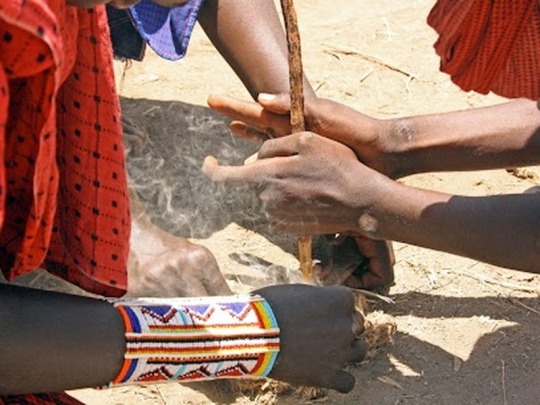
Day 2: Tarangire National Park – Where Giants Roam
The road to Tarangire is a ribbon of red earth stretching into infinity. Along the way, life unfolds in the simplest moments—women in bright kitenge fabrics carrying baskets, Maasai warriors herding cattle, children waving at passing travelers. Then, the wilderness takes over. Tarangire is a place of quiet grandeur, where ancient baobabs hold the sky and elephants walk with the wisdom of a thousand sunsets. Lions rest beneath acacia trees, giraffes move like poetry, and the river carves its way through the land, offering life to all who seek it.
Day 3-4: Serengeti – A Land of Legends
The Serengeti is not a destination; it is a revelation. Here, nature unfolds like an epic tale—an unbroken narrative of survival and splendor. As the vehicle hums across the endless plains, you witness a spectacle unlike any other: the Great Migration, where wildebeests and zebras move as if guided by an unseen force, a rhythm older than memory. Lions watch from golden grasses, cheetahs chase the wind, and in the stillness of dusk, elephants wade through rivers painted in firelight.
Day 5: Ngorongoro Crater – A World Within a World
Descending into the Ngorongoro Crater feels like stepping into a lost Eden. The air is cool, heavy with the scent of damp earth and wild sage. Here, amidst the emerald slopes and silver mist, the Big Five roam freely—rhinos that walk like warriors, leopards that slip through shadows, and lions whose amber eyes hold the stories of the land. This crater is a sanctuary, a place where the world has remained as it once was—untamed, unbroken, eternal.
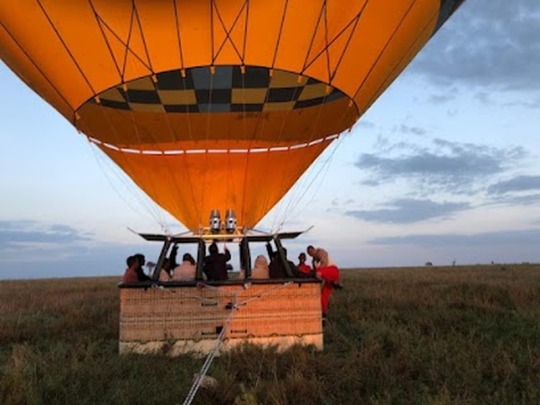
Day 6: Lake Manyara – The Dance of Water and Sky
At Lake Manyara, the world shifts again. The water glistens under the African sun, reflecting the pink hues of flamingos that move in delicate unison. Tree-climbing lions rest in the branches, their golden coats blending with the dappled light. The lake is a mirror, a quiet reminder that nature, in all its forms, is a masterpiece.
Day 7: Return to Arusha – A Journey Remembered
As you make your way back to Arusha, the dust of the savannah clings to your skin, the echoes of roaring lions still hum in your ears, and the vastness of the land settles into your soul. A 7 Days Tanzania Safari is not merely a trip; it is a transformation, an awakening to the beauty of the world as it was meant to be.
Let Chalema Tanzania Safaris guide you into the heart of this timeless wilderness. Call +255 678 854 300 and step into the story of a lifetime.
For more Information about our citation please visit our citation links:–anibookmark.com, askmap.net, bizidex.com. clutch.co, trustpilot.com,Business.google.com
0 notes
Text
Unit 9 Blog Post
The sun dips low over the savannah as a herd of elephants moves across the plain, with the oldest female leading the way. The matriarch is unmistakable, her steady pace guiding the group. Her position at the front is no coincidence; it’s a result of years of experience and accumulated wisdom. This role is central to the herd’s survival—her knowledge of the land and resources, as well as the intricate social dynamics, allows her to lead the group with unmatched authority.

Matriarchs are the emotional anchors of the herd, not only navigating physical landscapes but also providing emotional support to each member. The younger elephants, particularly the calves, follow her closely, responding to her subtle cues with instinctive trust. When she shifts direction, they follow without question. The herd’s cohesiveness is tied to her leadership, and the silent communication she shares with them—flicks of her ears or a slight tilt of her head—are all signals that guide the entire group.

As they walk, the youngest elephants extend their trunks toward the matriarch in affectionate gestures. These tactile interactions go beyond simple communication; they are expressions of affection, reassurance, and deep social connection. The elephant trunk, an incredibly sensitive appendage, is central to bonding. It is used not only for practical tasks like feeding and drinking but for emotional exchanges as well, strengthening the ties between individuals. These moments, marked by gentle touches, reaffirm the herd’s social bonds.

The herd pauses in a clearing, and there, in the grass, lies the skeletal remains of a deceased elephant. The matriarch steps forward, and the rest of the herd follows her in a slow, deliberate procession. Each elephant, one by one, approaches the bones, touching them gently with their trunks. This ritual, quiet yet deeply significant, is an expression of mourning, a behaviour observed across elephant populations. Elephants have been known to grieve, and their mourning behaviours are some of the most complex seen in the animal kingdom. The herd surrounds the remains in a moment of silent contemplation, paying their respects in a way that speaks to their emotional intelligence.

The matriarch’s role becomes even more evident in this moment. As the emotional center of the herd, she leads the group through this ritual of grief, providing stability. The herd relies on her not only for practical guidance but also for emotional support, demonstrating their understanding of loss. The act of mourning, communicated through soft touches and extended trunks, is a profound display of empathy and emotional depth.
This intricate web of communication—both tactile and emotional—highlights the intelligence of elephants and their complex social structure. The matriarch is central to maintaining harmony, ensuring the herd remains united in times of joy and sorrow alike. Her leadership is not just about directing the group physically, but also about nurturing their emotional well-being, keeping the herd connected even in the face of loss. The social bonds of elephants are deeply rooted in their ability to communicate and support each other, making them one of the most emotionally intelligent species on Earth.

This information was shared with me during a visit to Maasai communities, where I had the unique opportunity to learn from the Maasai people about the profound connections they have observed in elephants over generations. Their insights into elephant behaviour were eye-opening, and witnessing these incredible creatures firsthand left a lasting impact on me. It became clear that elephants' social dynamics are far more complex than I had imagined, and this knowledge ignited a deep desire to contribute to their conservation. In my search for ways to support elephants, I discovered the Sheldrick Wildlife Trust, an organization that rescues and rehabilitates orphaned elephant calves across Africa. Understanding how vital it is for calves to grow up in a supportive elephant family, I strongly believe in the work they do. The trust’s efforts to reunite orphans with wild herds are not only crucial for their physical rehabilitation but for their emotional and social growth as well. If you are interested in checking out the work they do you can follow this link https://www.sheldrickwildlifetrust.org/projects
1 note
·
View note
Text
Animals to see on an African wildlife safari

Travel Company: DAV Safaris
Website: www.davsafaris.com
Email:[email protected]
Tel: +256757795781 or +256701412430
Embarking on an African wildlife safari offers a thrilling opportunity to witness some of the world’s most magnificent creatures in their natural habitats. From the iconic Big Five to lesser-known mammals and reptiles, Africa is home to an incredible diversity of wildlife. Here’s a detailed guide to the animals you can expect to encounter during your adventure.
1. The Big Five
African Lion
Description: The majestic apex predator, recognized for its impressive mane and intricate pride dynamics.
Habitat: Grasslands, savannas, and woodlands.
Best Locations:
Maasai Mara, Kenya: Known for large lion populations and dramatic hunts.
Serengeti, Tanzania: Famous for the Great Migration and lion sightings.
Kruger National Park, South Africa: Offers diverse habitats and abundant lions.
African Elephant
Description: The largest land mammal, celebrated for its intelligence and complex social structures.
Habitat: Savannas, forests, and grasslands.
Best Locations:
Chobe National Park, Botswana: Home to one of the largest elephant populations.
Amboseli National Park, Kenya: Stunning views of elephants against Mount Kilimanjaro.
Addo Elephant National Park, South Africa: A significant population of elephants resides here.
African Leopard
Description: A solitary and elusive big cat, known for its striking rosette-patterned coat.
Habitat: Woodlands, savannas, and mountainous regions.
Best Locations:
Kruger National Park, South Africa: High leopard density and excellent viewing opportunities.
Maasai Mara, Kenya: Great chances to see leopards resting in trees.
Serengeti, Tanzania: Known for both leopards and the Great Migration.
Cape Buffalo
Description: A large and powerful herbivore, recognized for its unpredictable behavior.
Habitat: Grasslands, woodlands, and wetlands.
Best Locations:
Kruger National Park, South Africa: Home to significant buffalo herds.
Serengeti, Tanzania: Part of the Great Migration.
Chobe National Park, Botswana: Large herds along the Chobe River.
Rhinoceros
Description: Thick-skinned herbivores; critically endangered species include black and white rhinos.
Habitat: Grasslands and savannas.
Best Locations:
Ol Pejeta Conservancy, Kenya: A sanctuary for both species.
Hluhluwe-iMfolozi Park, South Africa: Known for successful rhino conservation efforts.
Etosha National Park, Namibia: Home to both black and white rhinos.
2. Other Notable Carnivores
Cheetah
Description: The fastest land mammal, known for its speed and unique hunting strategies.
Habitat: Open savannas and grasslands.
Best Locations:
Serengeti, Tanzania: Ideal for sightings during the day.
Maasai Mara, Kenya: Renowned for cheetah research and conservation.
Kruger National Park, South Africa: Offers diverse habitats for cheetahs.
Spotted Hyena
Description: Social scavengers noted for their intelligence and vocalizations.
Habitat: Grasslands and savannas.
Best Locations:
Serengeti, Tanzania: Large clans and active hunts.
Kruger National Park, South Africa: High sightings near waterholes.
Maasai Mara, Kenya: Known for hyena dens and social interactions.
African Wild Dog
Description: Highly social pack animals with unique hunting strategies.
Habitat: Savannas and open woodlands.
Best Locations:
Hwange National Park, Zimbabwe: Known for successful packs.
Selous Game Reserve, Tanzania: Large populations and good visibility.
Mana Pools National Park, Zimbabwe: Renowned for wild dog sightings.
Jackal
Description: Small canids recognized for their scavenging and hunting abilities.
Habitat: Open grasslands and savannas.
Best Locations:
Serengeti, Tanzania: Commonly seen around carcasses.
Kruger National Park, South Africa: Often spotted during night drives.
Maasai Mara, Kenya: Frequently seen in the plains.
Caracal
Description: A medium-sized wild cat known for agility and tufted ears.
Habitat: Savannas and scrublands.
Best Locations:
Kgalagadi Transfrontier Park, South Africa: Known for its elusive nature.
Kruger National Park, South Africa: Occasional sightings in the bush.
Etosha National Park, Namibia: Rare but possible sightings.
3. Herbivores
Giraffe
Description: The tallest land animals, known for their long necks and unique feeding habits.
Habitat: Open savannas and woodlands.
Best Locations:
Maasai Mara, Kenya: Often seen browsing on acacia trees.
Serengeti, Tanzania: Commonly found in wooded areas.
Kruger National Park, South Africa: High visibility in the park.
Zebra
Description: Striped herbivores that live in large herds, noted for their social behavior.
Species: Includes Plains, Grevy's, and Mountain zebras.
Best Locations:
Serengeti, Tanzania: Integral to the Great Migration.
Maasai Mara, Kenya: Large herds in open grasslands.
Etosha National Park, Namibia: Commonly seen throughout the park.
Kudu
Description: Large antelopes distinguished by impressive twisted horns and graceful movements.
Habitat: Woodlands and bushy savannas.
Best Locations:
Kruger National Park, South Africa: High density in wooded areas.
Etosha National Park, Namibia: Frequently seen near waterholes.
Zambia: South Luangwa National Park is known for kudu sightings.
Hippopotamus
Description: Large semi-aquatic mammals recognized for their aggressive nature and massive mouths.
Habitat: Rivers and lakes.
Best Locations:
Kazinga Channel, Uganda: High concentrations of hippos.
Luangwa River, Zambia: Commonly seen in the water.
Okavango Delta, Botswana: Often spotted in channels and lagoons.
Warthog
Description: Medium-sized wild pigs recognized by their distinctive tusks and facial growths.
Habitat: Grasslands and savannas.
Best Locations:
Kruger National Park, South Africa: Frequently seen in open areas.
Maasai Mara, Kenya: Commonly spotted grazing near water.
Chobe National Park, Botswana: Often seen in grasslands.
4. Smaller Mammals
Meerkat
Description: Small, social mammals known for their upright stances and cooperative behavior.
Habitat: Semi-arid regions.
Best Locations:
Kalahari Desert, Botswana: Famous for large colonies.
Kruger National Park, South Africa: Occasionally seen in the wild.
Dwarf Mongoose
Description: The smallest mongoose species, often spotted in family groups.
Habitat: Grasslands and scrublands.
Best Locations:
Kruger National Park, South Africa: Commonly visible near burrows.
Serengeti, Tanzania: Frequently foraging for insects.
Bushbaby
Description: Nocturnal primates known for their large eyes and agility.
Habitat: Forests and savannas.
Best Locations:
Kruger National Park, South Africa: Can be seen on night drives.
Madagascar: Various species in the forests.
5. Reptiles
Nile Crocodile
Description: Africa's largest crocodile, known for its powerful jaws and adaptability.
Habitat: Rivers, lakes, and wetlands.
Best Locations:
Okavango Delta, Botswana: Frequently seen near water.
Murchison Falls, Uganda: Commonly basking on banks.
Agama Lizard
Description: Colorful lizards often found basking on rocks.
Habitat: Rocky areas and savannas.
Best Locations:
Serengeti, Tanzania: Commonly seen on rocks.
Kruger National Park, South Africa: Frequently spotted in sunny areas.
Monitor Lizard
Description: Large lizards known for their hunting skills.
Habitat: Wetlands and rocky areas.
Best Locations:
Okavango Delta, Botswana: Often found near water.
Zambezi River: Frequently spotted hunting along the banks.
Africa's wildlife is as diverse as its landscapes. Whether you’re tracking the Big Five or marveling at the subtle beauty of smaller mammals and reptiles, every safari is a unique adventure waiting to unfold. When planning your trip, consider the best locations and times to visit these incredible animals to make the most of your experience.
0 notes